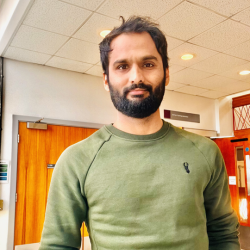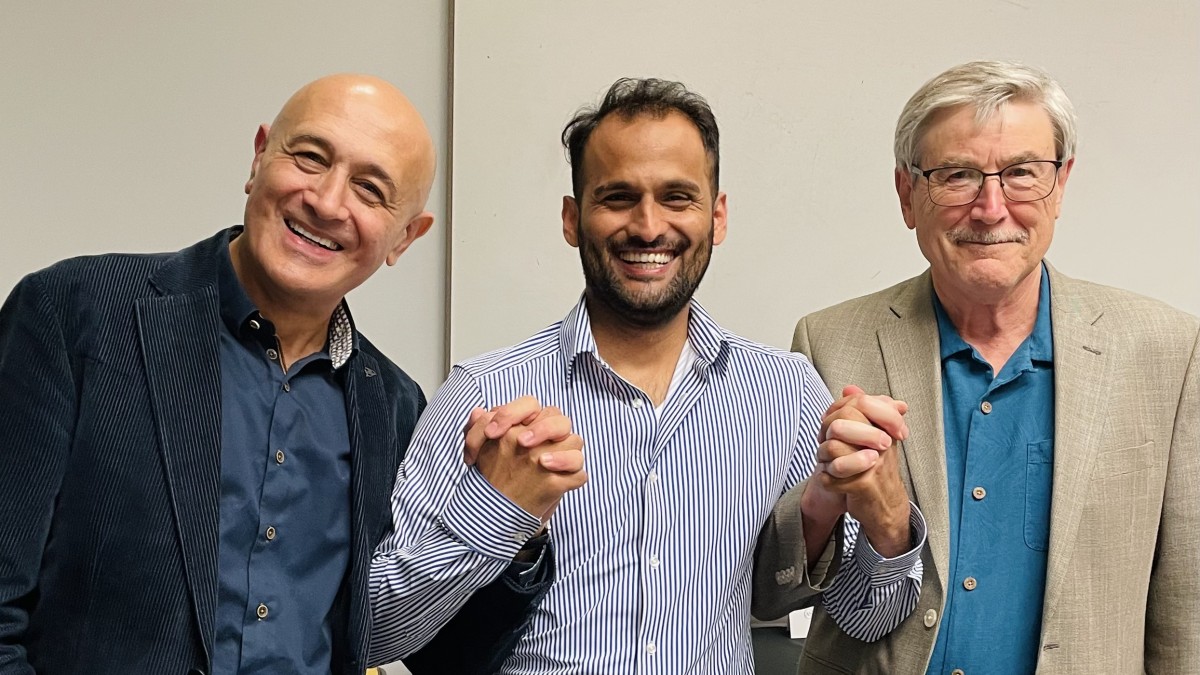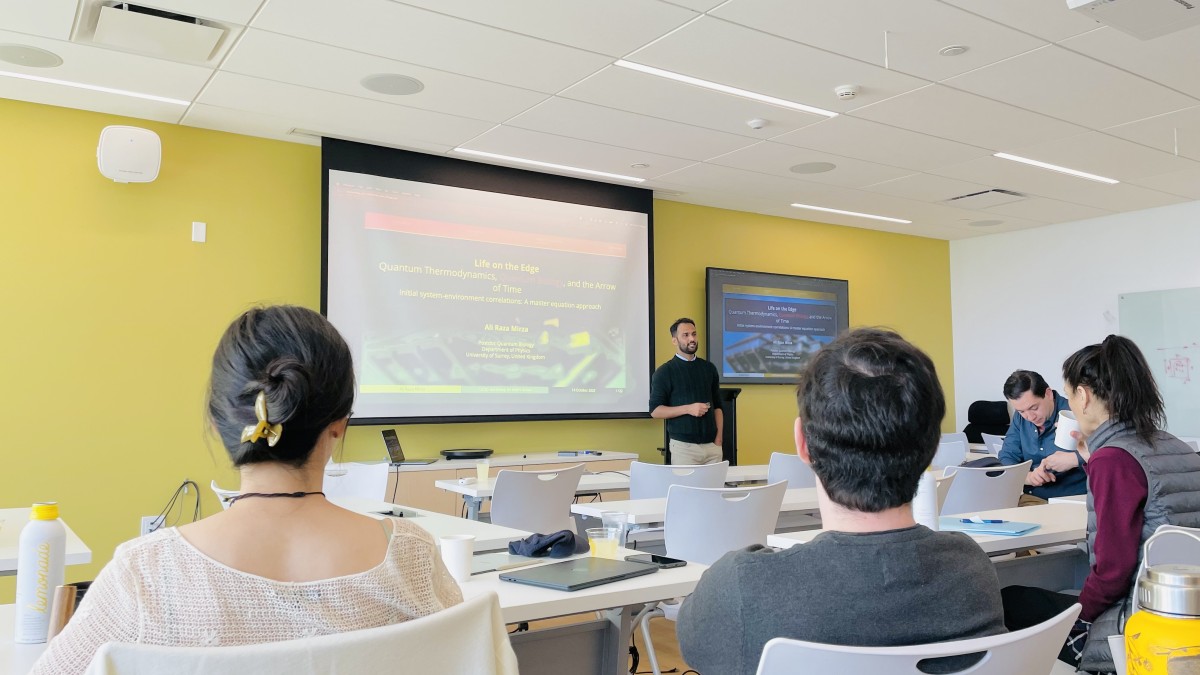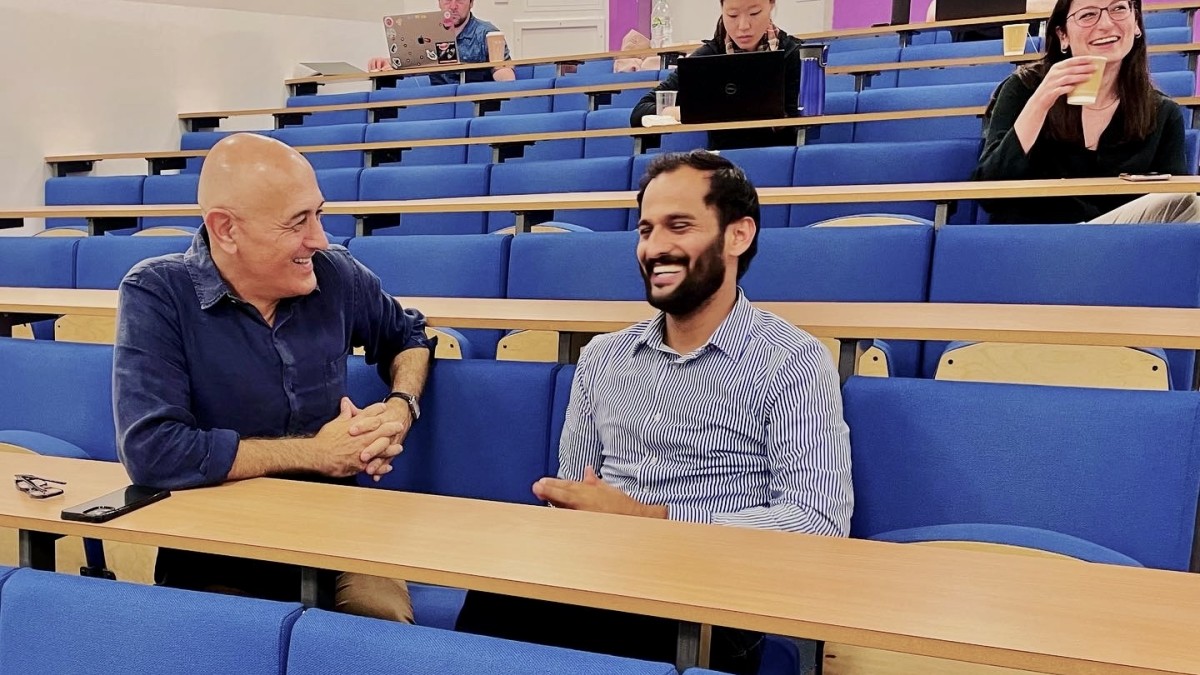
Dr Ali Raza Mirza
About
Biography
Dr Ali Raza Mirza is a quantum physicist with a PhD in open quantum systems and two years of research experience as a postdoctoral researcher in the field. Their work focuses on harnessing the power of open quantum systems in specific areas of expertise, e.g., quantum computing, quantum optics, and quantum information theory, and contributing significantly to the scientific community through research and publications.
Dr. Mirza has authored around six peer-reviewed journal articles, and serves as a referee for physics journals, ensuring the quality of scientific publications. As an invited speaker, they have presented research at five international conferences in the UK, USA, and Pakistan, engaging with leading experts in the field. Their research focuses on advancing the understanding of parameter estimations and the role of quantum correlations. Their expertise includes theoretical modelling, analytical calculations and numerical numerical simulations.
Committed to pushing the boundaries of quantum science, Dr. Mirza actively collaborates with researchers worldwide and participates in international conferences. Their academic excellence has been recognised with a gold medal during their bachelor's degree. They are dedicated to exploring new frontiers in quantum mechanics and its applications in emerging quantum technologies. Dr. Mirza is passionate about promoting science through teaching and hands-on workshops, inspiring a love for physics among young minds. Their teaching is interactive and activity-based, making physics learning truly fascinating.
Jim Al-Khalili Ali Raza Mirza Paul Davies at Blue Sky Thinking Conference at University of California, Los Angeles

Presenting Quantum Biology at University of California, San Diego

Presenting Calligraphy gift to Prof Asghar Zaidi VC Govt. College University Lahore

Arrow of time Conference at University of California, San Diego
Happy Birthday Jim Al khalili

ResearchResearch interests
My research largely deals with the dynamics of open quantum systems, that is, quantum systems interacting with their surrounding environment. Such systems are important not only in understanding the quantum-to-classical transition but also for the practical implementation of modern quantum technologies. The dynamics of these systems is a challenging task because of the large degree of freedom of the environment. In studies of open quantum systems performed to date, a very common assumption is that the system and the environment are in a product state (no system-environment correlations). One primary objective of my research is to critically analyse this assumption. As such, I have incorporated the effect of initial system-environment correlations present in the thermal equilibrium state. to improve the understanding of quantum dynamics. In this regard, I have followed two approaches to investigate the dynamics. First, using exactly solvable models such as spin-spin model and spin-boson model. Second, by considering an arbitrary system interacting with an arbitrary environment and derive a master equation. My study reveals the role played by initial correlations can be noticeable even if the system-environment coupling strength is kept smaller. However, the effect of initial correlations is very significant in the strong coupling regime, therefore master equation that can deal with the strong interactions is under consideration.
Another aspect of my research is to estimate the parameters characterizing the environment of a quantum system. After all, in order to predict the dynamics of a quantum system, one needs to know, for example, the cutoff frequency of the environment as well as its temperature. By employing a variety of quantum systems, the precision of estimates is improved. The tool provided by quantum estimation theory that I have used is to derive quantum Fisher information. And here once again initial correlations play an essential role to maximise quantum Fisher information and hence the precision of our estimates. As an extension of my PhD research, I recently started studying work counting statistics of periodically driven quantum systems weakly/strongly coupled to the environment via the Lindblad master equation. Polaron transformation and a two-point measurement scheme have been used.
Research projects
Conting statistics for work in periodically driven quantum system strongly coupled to the harmonic oscillator environementThis is an ongoing project at the University of Surrey in the collaboration with Dr Ahsan Nazir from the University of Manchester and Prof Jim Al Khalili from the host institution. In this project, we use a two-point measurement scheme and construct a characteristic function as a Fourier transform of the probability distribution. We derive a counting field-dependent Markovian master equation describing the system's dynamics. We have also included the contribution of the interaction Hamiltonian to have a more precise idea about the dynamics.
Research interests
My research largely deals with the dynamics of open quantum systems, that is, quantum systems interacting with their surrounding environment. Such systems are important not only in understanding the quantum-to-classical transition but also for the practical implementation of modern quantum technologies. The dynamics of these systems is a challenging task because of the large degree of freedom of the environment. In studies of open quantum systems performed to date, a very common assumption is that the system and the environment are in a product state (no system-environment correlations). One primary objective of my research is to critically analyse this assumption. As such, I have incorporated the effect of initial system-environment correlations present in the thermal equilibrium state. to improve the understanding of quantum dynamics. In this regard, I have followed two approaches to investigate the dynamics. First, using exactly solvable models such as spin-spin model and spin-boson model. Second, by considering an arbitrary system interacting with an arbitrary environment and derive a master equation. My study reveals the role played by initial correlations can be noticeable even if the system-environment coupling strength is kept smaller. However, the effect of initial correlations is very significant in the strong coupling regime, therefore master equation that can deal with the strong interactions is under consideration.
Another aspect of my research is to estimate the parameters characterizing the environment of a quantum system. After all, in order to predict the dynamics of a quantum system, one needs to know, for example, the cutoff frequency of the environment as well as its temperature. By employing a variety of quantum systems, the precision of estimates is improved. The tool provided by quantum estimation theory that I have used is to derive quantum Fisher information. And here once again initial correlations play an essential role to maximise quantum Fisher information and hence the precision of our estimates. As an extension of my PhD research, I recently started studying work counting statistics of periodically driven quantum systems weakly/strongly coupled to the environment via the Lindblad master equation. Polaron transformation and a two-point measurement scheme have been used.
Research projects
This is an ongoing project at the University of Surrey in the collaboration with Dr Ahsan Nazir from the University of Manchester and Prof Jim Al Khalili from the host institution. In this project, we use a two-point measurement scheme and construct a characteristic function as a Fourier transform of the probability distribution. We derive a counting field-dependent Markovian master equation describing the system's dynamics. We have also included the contribution of the interaction Hamiltonian to have a more precise idea about the dynamics.
Publications
We present a general master equation, correct to second order in the system-environment coupling strength, that takes into account the initial system-environment correlations. We assume that the system and its environment are in a joint thermal equilibrium state, and thereafter, a unitary operation is performed to prepare the desired initial system state, with the system Hamiltonian possibly changing thereafter as well. We show that the effect of the initial correlations shows up in the second-order master equation as an additional term, similar in form to the usual second-order term describing relaxation and decoherence in quantum systems. We apply this master equation to a generalization of the paradigmatic spin-boson model, namely, a collection of two-level systems interacting with a common environment of harmonic oscillators, as well as a collection of two-level systems interacting with a common spin environment. We demonstrate that, in general, the initial system-environment correlations need to be accounted for in order to accurately obtain the system dynamics.
Open quantum systems are a subject of immense interest as their understanding is crucial in the implementation of modern quantum technologies. In the study of their dynamics, the role of the initial system-environment correlations is commonly ignored. In this work, to gain insights into the role of these correlations, we solve an exactly solvable model of a single two-level system interacting with a spin environment, with the initial system state prepared by a suitable unitary operation. By solving the dynamics exactly for arbitrary system-environment coupling strength while taking into account the initial system-environment correlations, we show that the effect of the initial correlations is, in general, very significant and non-trivial. To further highlight the importance of the initial system-environment correlations, we also extend our study to investigate the dynamics of the entanglement between two two-level systems interacting with a common spin environment
We demonstrate how using two qubits can drastically improve the estimation of environment parameters as compared to using only a single qubit. The two qubits are coupled to a common harmonic oscillator environment, and the properties of the environment are imprinted upon the dynamics of the two qubits. The reduced density matrix of only one of these qubits contains a decoherence factor as well as an additional factor taking into account the indirect interaction induced between the qubits due to the interaction with their common environment. This additional factor can drastically improve the estimation of the environment parameters, as quantified by the quantum Fisher information. In particular, we investigate the estimation of the cutoff frequency, the coupling strength, and the temperature using our two-qubit scheme as compared to simply using a single qubit. For super-Ohmic environments in particular, one can improve the precision of the estimates by orders of magnitude.